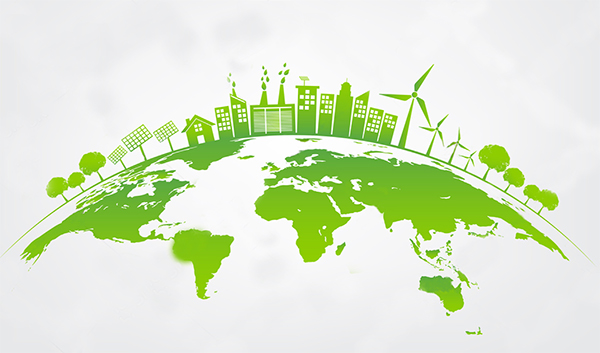Energy has supported human life since ancient times. We relied on the sun, burned wood, straw, and dried dung for heat. We also relied on animals and the power of the wind to transport us to every corner of the world and to do jobs that we couldn't do with our own labor. Water and wind helped us to drive the simple machines that ground our grain and pumped our water. With the fast evolution of industry, the way our society consume energy has changed. The rate of growth of global primary energy consumption has been remarkably stable since 1850 (2.4%/year ±0.08%) and shows no sign of slowing down. Power plants became larger and larger, power lines extended hundreds of miles between cities. The cost of energy production was declining steadily. Large manufacturing of cars and trains also made energy use grow quickly, doubling every ten years.

However, the large consumption of energy sooner brought the sustainable concern, and global issues such as greenhouse gas emissions, acid rain, climate change. Energy consumption and its associated environmental side-effects pervaded all aspects of our personal and public life to the point where we have become oblivious to it. For example, ten searches on the Internet require one-kilowatt hour (kWh) of electricity. A similar amount is required for a saving lamp to light for 36 hours. About 30 kWh of energy are used in the average home—for heating, hot water, and electrical appliances—every day. Drive 60 miles in a car consumes the equivalent of 70 kWh.
Many countries start to make sustainable energy development strategies which typically involve three major technological changes: energy savings on the demand side, efficiency improvements in the energy production, and replacement of fossil fuels by various sources of renewable energy. Improving energy efficiency and reducing energy demand are widely considered as the most promising, fastest, cheapest and safest means to mitigate climate change, i.e., reducing national CO2 emissions. Renewable energy (wind, solar, wave and biomass) is considered an important resource in many today's developed countries around the world. Consequently, large-scale renewable energy implementation plans must include strategies for integrating renewable sources in coherent energy systems influenced by energy savings and efficiency measures.
As the global energy landscape is evolving, renewable energy plays an increasingly key role in the making of strategies for a sustainable development. Lifeasible continues working on improving the efficiency of energy use we depend on today, as well as innovating and developing renewable energy technologies of the future. Through the partnership with our customers, our commitment to deliver cost-effective service and additional benefits such as improved energy security, reduced energy demand and increased economic productivity to people around the world is one thing that will never change.
Lifeasible has established a one-stop service platform for plants. In addition to obtaining customized solutions for plant genetic engineering, customers can also conduct follow-up analysis and research on plants through our analysis platform. The analytical services we provide include but are not limited to the following:
STU-CRISPR System Improves Plant Genome Editing Efficiency
April 19, 2024
Application of Exosomes in Facial Beauty
April 12, 2024